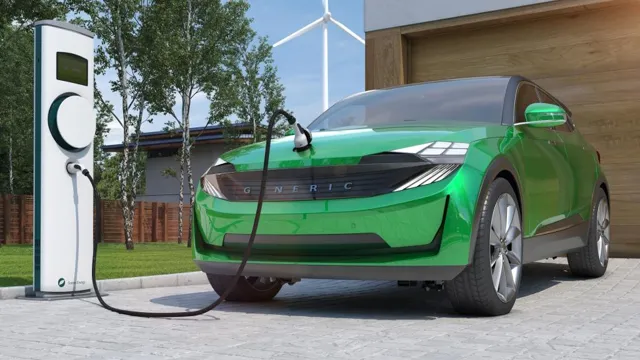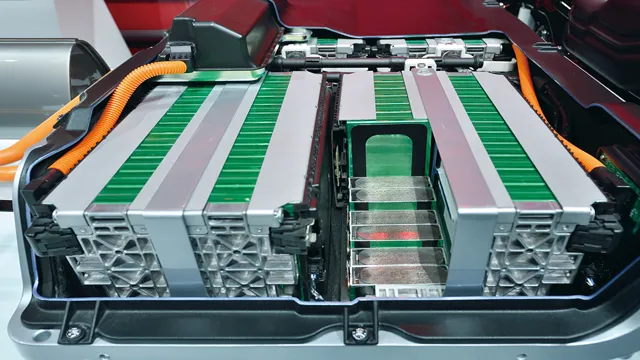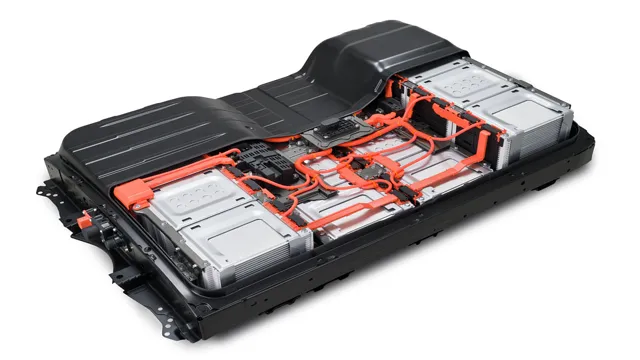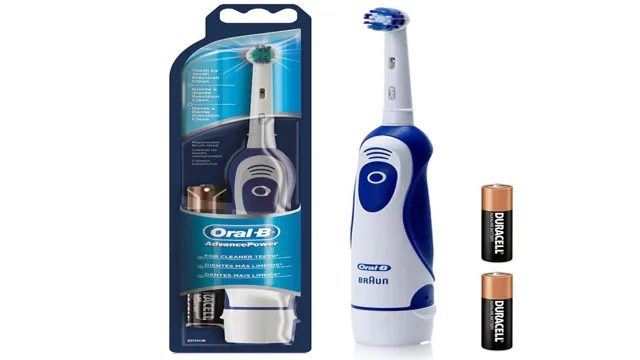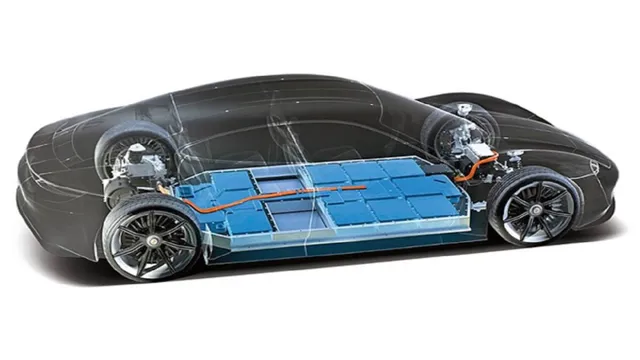Powering the Future: Everything You Need to Know About Electric Cars and Lithium Ion Batteries
Electric cars have become increasingly popular over the past few years, with many automakers rushing to produce eco-friendly vehicles that are powered by electricity. Unlike traditional cars that rely on fossil fuels, these electric cars do not produce any emissions and are much better for the environment. However, the key component that makes these cars possible is the lithium-ion battery.
These powerful batteries are responsible for giving electric cars the energy they need to operate, which begs the question: how do they work and how are they made? In this blog, we’ll explore the process of how lithium-ion batteries are made, and why they’re so important for the advancement of electric cars.
What are lithium ion batteries?
In short, electric cars do use lithium ion batteries. These batteries are the most commonly used type in modern electric vehicles due to their high energy density and long life cycles. Lithium ion batteries are made up of several cells that contain positive and negative electrodes, as well as a liquid electrolyte that allows for the transfer of ions between the electrodes.
Electric motors in the car draw power from these batteries, which are recharged through regenerative braking or by plugging the car into an external power source. While lithium ion batteries are a significant improvement over older battery technologies, they still have some limitations, including their high cost and potential safety concerns. Despite this, advances in battery technology are continuing, and it is expected that lithium ion batteries will remain a crucial component of electric cars in the near future.
Definition and features of lithium ion batteries
Lithium ion batteries are rechargeable batteries commonly used in portable devices such as laptops, smartphones, and tablets. These batteries are lightweight, compact, and have a high energy density, meaning they can store a lot of power in a small space. They work by using lithium ions to move between the anode and cathode of the battery to charge and discharge.
One of the key features of lithium ion batteries is their ability to hold a charge for a long period of time, even when not in use. They are also known for their fast charging time and high efficiency, making them a popular choice for many electronic devices. Additionally, lithium ion batteries are known for their safety, as they are less prone to overheating and exploding compared to other rechargeable batteries.
As technology continues to evolve, lithium ion batteries are likely to play a critical role in powering our modern world.
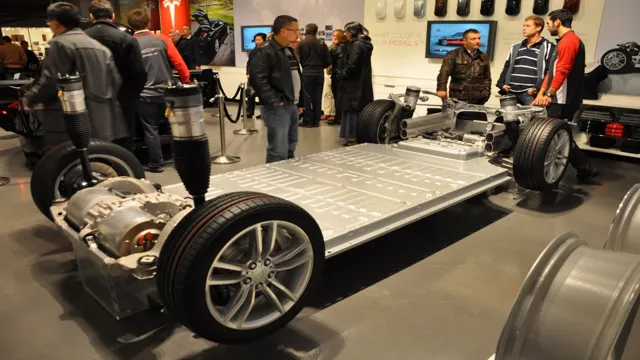
Advantages and disadvantages of lithium ion batteries
Lithium ion batteries are rechargeable, energy-dense batteries that are commonly used in electronic devices such as laptops and smartphones. They have gained popularity due to their high energy density, which allows for a longer battery life, and their ability to hold a charge for a long time when not in use. However, like any technology, lithium ion batteries also come with a few disadvantages.
These include the potential for thermal runaway and the fact that they can be quite expensive to manufacture. On the other hand, lithium ion batteries are also environmentally friendly and have lower maintenance costs than other types of batteries. Overall, while there are a few drawbacks to lithium ion batteries, their benefits make them an excellent choice for powering portable electronic devices.
So, if you’re looking for a reliable, long-lasting battery, a lithium ion battery may be just what you need.
The Role of Lithium Ion Batteries in Electric Cars
Yes, electric cars do use lithium ion batteries as their primary source of power. Lithium ion batteries are widely regarded as the best option for electric vehicles due to their high energy density, long life span, and relatively low weight. These batteries are made up of multiple cells, each containing a positive and negative electrode separated by a thin layer of electrolyte.
When a charge is applied, the lithium ions move from the positive to the negative electrode, producing an electrical current that powers the car’s motor. The use of lithium ion batteries has greatly improved the performance of electric vehicles, allowing them to travel longer distances on a single charge and charge more quickly than previous battery technologies. As demand for electric cars continues to grow, the development of more advanced and efficient lithium ion batteries will be crucial to their continued success.
Why are lithium ion batteries used in electric cars?
Lithium ion batteries are used in electric cars for several reasons. Firstly, they have a high energy density, which means they can store a lot of energy in a compact space. This allows the battery to be relatively small in size while still providing enough power to propel the car.
Secondly, lithium ion batteries are rechargeable, which is crucial for electric cars. The batteries can be recharged using regenerative braking or by plugging the car into an electric power source. Thirdly, lithium ion batteries have a long lifespan, making them a reliable power source for electric cars.
Finally, they are also lightweight, which helps to minimize the overall weight of the car. This is important because the heavier the car, the more energy it requires to move. All of these factors make lithium ion batteries the ideal choice for electric cars, allowing them to travel farther and more efficiently than ever before.
Comparison with other types of batteries used in electric cars
When it comes to electric cars, lithium-ion batteries are the go-to choice. The reason for this is simple: compared to other types of batteries, lithium-ion batteries offer a number of advantages. For one thing, they have a higher energy density, which means that they can store more energy in the same amount of space.
This makes them ideal for use in electric cars, which require a lot of energy to run. Additionally, lithium-ion batteries have a longer lifespan than other types of batteries, which means that they don’t need to be replaced as often. They also have a faster charging time and a lower self-discharge rate, which means that they can hold their charge for longer periods of time.
All of these factors make lithium-ion batteries the preferred choice for electric car manufacturers, and it’s easy to see why. With their high energy density, long lifespan, and fast-charging capabilities, they’re the perfect solution for powering the cars of the future.
Battery size and range of electric cars
Lithium ion batteries play a crucial role in the range and performance of electric cars. These batteries offer high energy density and longevity, enabling drivers to cover greater distances without recharging. The size of the battery pack determines the range of the car, and as technology improves, so does the potential range.
While larger batteries provide longer ranges, they also come at a higher cost. However, the cost of lithium ion batteries is coming down due to advancements in production techniques and increased demand for electric vehicles. As a result, we are seeing electric cars with larger battery packs and longer ranges becoming more accessible to consumers.
With that being said, it is essential to note that battery size is not the only factor that determines the range of an electric car. Other factors, such as driving style, terrain, and temperature, also play a significant role in the car’s performance. Overall, lithium ion batteries allow electric cars to deliver exciting performance while providing environmental benefits.
Popular Electric Cars with Lithium Ion Batteries
Yes, electric cars use lithium ion batteries as their primary source of power. In recent years, more and more electric vehicles have been hitting the market, and almost all of them are powered by high-end lithium ion batteries. These batteries are more efficient and long-lasting than traditional batteries, making them the ideal choice for electric vehicles.
Some of the most popular electric cars powered by lithium ion batteries include the Tesla Model S, the Chevrolet Bolt EV, and the Nissan Leaf. These vehicles are highly sought after due to their impressive range and low carbon emissions. By using lithium ion batteries, electric cars are not only more environmentally-friendly, but also more cost-effective and convenient for drivers.
Overall, the use of lithium ion batteries has revolutionized the electric car industry and will continue to do so in the years to come.
Brand and model names of electric cars with lithium-ion batteries
Lithium-ion batteries are common in modern electric cars because of their compact size, reliable performance, and extended driving range. There are many popular models and brands of electric cars that use lithium-ion batteries, including Tesla Model S, Chevrolet Bolt EV, Nissan Leaf, and the BMW i Tesla Model S is a luxury electric car with a range of up to 402 miles on a single charge and impressive acceleration.
Chevrolet Bolt EV and Nissan Leaf are affordable electric cars with a range of up to 259 and 226 miles, respectively. BMW i3 is a compact electric car with a range of up to 153 miles on a single charge. Each of these cars has its unique features and advantages, making them suitable for different drivers and lifestyles.
With more and more automakers embracing electrification, we are likely to see many more electric cars with lithium-ion batteries in the future.
Features and specifications of electric cars with lithium-ion batteries
Electric cars with lithium-ion batteries have become increasingly popular among eco-conscious individuals, thanks to their impressive features and specifications. One such popular electric car is the Tesla Model S, which boasts a sleek design and impressive range of up to 373 miles on a single charge, thanks to its advanced lithium-ion battery system. The Nissan Leaf is another popular electric car, which features a 40 kWh lithium-ion battery and has a range of up to 150 miles.
The BMW i3 is a compact electric car that utilizes a high-voltage lithium-ion battery for a range of up to 153 miles. With faster charging times and longer ranges, electric cars with lithium-ion batteries are becoming a viable option for everyday use, making it easier to reduce our carbon footprint and transition to a more sustainable future.
Conclusion: Lithium Ion Batteries and the Future of Electric Cars
In short, the question of whether electric cars use lithium ion batteries can be answered with a resounding yes. However, it’s not just as simple as plugging in a battery and hitting the road. There are a multitude of factors that go into creating these batteries, including mining for the necessary materials, processing them to create the battery cells, and disposing of the batteries at the end of their life.
Despite these challenges, electric cars with lithium ion batteries are paving the way for a cleaner, more sustainable future in transportation. So, if you’re in the market for a new car, consider going electric and join the charge towards a greener tomorrow!”
FAQs
What type of batteries do electric cars use?
Electric cars typically use lithium ion batteries.
Why are lithium ion batteries commonly used in electric cars?
Lithium ion batteries are commonly used in electric cars due to their high energy density, long lifespan, and fast charging capability.
How long do lithium ion batteries in electric cars last?
Lithium ion batteries in electric cars can last anywhere between 8 to 10 years, depending on usage and maintenance.
Can lithium ion batteries be recycled in electric cars?
Yes, lithium ion batteries used in electric cars are recyclable and can be repurposed for other electronic devices.
